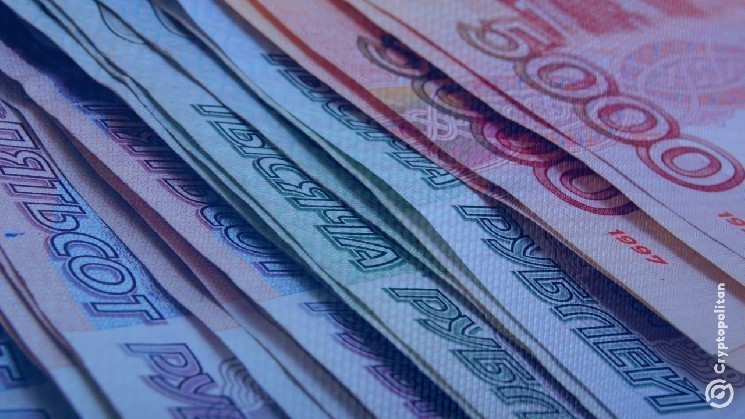Round half of Russian residents have no real interest in making an attempt the digital ruble, based on a survey which additionally discovered that some 40% see no benefits within the newest incarnation of the nationwide fiat.
The outcomes have been revealed after lawmakers in Moscow accredited a brand new timetable for the introduction of the state-issued coin. It ought to begin a few yr from now in accordance with Financial institution of Russia’s newest proposal that adopted Putin’s latest name for vast adoption.
Russians largely unaware of digital ruble
Regardless of lately elevated media protection surrounding the up to date deadlines for the gradual launch of the digital twin of the Russian fiat, half of the Russian inhabitants know nothing concerning the digital ruble or have merely heard the time period, based on a brand new ballot.
Solely 7% of Russians are conscious of the third type of authorized tender of their nation, after money and financial institution cash, which has been below improvement for years. Understanding what “digital ruble” means, even amongst those that find out about it, stays obscure, the authors of the research famous, elaborating:
“A 3rd of respondents discovered it tough to reply, and among the many relaxation, opinions have been divided between perceiving the digital ruble as a type of non-cash or digital cash, an analogue of the common ruble in a brand new kind, and easily ‘digital forex’.”
The survey has been carried out by the government-controlled Russian Public Opinion Analysis Heart (VCIOM) in partnership with the Roscongress Basis, organizer of the St. Petersburg Worldwide Financial Discussion board (SPIEF).
Skepticism falling however nonetheless very excessive
Whereas the share of those that are prepared to make use of Russia’s central financial institution digital forex (CBDC) has grown over the previous couple of years, from 30% in 2023 to 35% in 2025, the bulk stays fairly skeptical. The pollsters highlighted:
“Half of Russians don’t need to attempt the brand new ruble format.”
Males are usually extra open in the direction of the thought than Russian girls, however the younger, below the age of 35, are positively probably the most keen amongst potential customers.
“With age, the share of those that ‘positively wouldn’t need’ to make use of the digital ruble grows, reaching its most amongst respondents over 60 years previous,” VCIOM added, emphasizing the distinction between generations.
Few Russians see benefits in CBDC
Most Russians discover it tough to gauge some great benefits of a digital ruble, whereas the few who can acknowledge them checklist safety, comfort and transparency on the prime – solutions which have remained unchanged since final yr’s version of the ballot.
The opinions of the bulk align with these of German Gref, the CEO of Russia’s largest lender. Chatting with the media on the SPIEF, the highest Sberbank govt admitted he was having a tough time seeing any potential advantages, stating:
“As a person, I don’t perceive why digital rubles are wanted. As a financial institution… I don’t but perceive it very effectively both.”
At 40%, skeptics satisfied that the digital ruble brings no vital benefits over conventional Russian fiat kind a a lot bigger portion of the surveyed pattern than optimists, at simply 6%. Тhe share of people that can’t reply the query concerning the professionals and cons is kind of excessive, VCIOM identified, concluding:
“Normally, the digital ruble continues to be perceived extra as a possible danger than as an apparent profit.”
Fearful members within the research have clearly formulated their essential issues, together with that the digital ruble comes with dangers of hacking, elevated state management, and dependence on the Web, once more repeating the highest three solutions from 2024.
Russian authorities plan to supply the general public entry to the brand new coin in levels, ranging from September 1, 2026, as per the Financial institution of Russia’s new schedule, accredited this week by the State Duma, the decrease home of parliament. In June, Vladimir Putin urged regulators to hurry up its launch.









